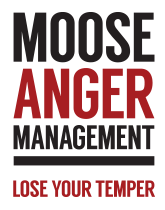Understanding Anger
Why It Matters and 5 Tools to Handle It Wisely
Anger is one of the most misunderstood and stigmatized emotions, yet it plays a vital role in our emotional and psychological well-being. Whether you’re someone who struggles with explosive outbursts or someone who suppresses all feelings of anger, it’s important to understand that anger, when used wisely, can be one of our most powerful allies.
What Happens When You Never Get Angry?
Some people seem calm all the time, never raising their voice or showing frustration. While this may appear admirable, it can often be a sign of deep emotional suppression. There are a few common reasons people avoid anger altogether:
- Shame or fear They may have been shamed in the past for expressing anger or showing any strong emotion.
- Emotional disconnection They might be numb, cut off from their feelings, or scared to confront their anger.
- Cultural or spiritual conditioning In some communities, especially certain spiritual ones, anger is considered “unspiritual” and must be hidden.
Unfortunately, this kind of suppression doesn’t resolve inner conflict. Instead, it festers. Repressed anger can manifest as passive behavior, physical illness (including autoimmune disorders and even cancer), and a chronic sense of not being heard. Without anger, people often don’t speak up for themselves or resolve important issues, leaving them feeling isolated or unseen.
The Power of Healthy Anger
Anger, when understood and directed skillfully, can be profoundly transformative:
- Motivation and focus It can help us push through resistance and stay determined.
- Authenticity Healthy anger allows us to be honest, peel back our own self-deceptions, and express who we truly are.
- Clarity It can help us set boundaries and speak our truth without becoming hostile or aggressive.
Contrary to popular belief, anger doesn’t have to turn into rage. If expressed with intention, at the right time, in the right place, with the right person, it can move through the body in just 90 seconds to a few minutes, leaving clarity and relief in its wake.
Why We Lose Control: The Neuroscience of Anger
When people “lose it,” they often act childishly or irrationally. This isn’t just emotional immaturity, it’s biology. When we feel threatened, our body enters fight or flight mode:
- The rational brain shuts down – Blood flow to the part of the brain responsible for reasoning and memory is restricted.
- The survival brain takes over – This ancient part of the brain operates on black-and-white, life-or-death logic. Everything becomes dramatic. The more escalated we become, the less emotional intelligence we have access to.
That’s why in moments of intense anger or stress, we might forget what we were saying, say things we regret, or feel like the situation is far worse than it actually is.
Five Tools to Prevent Explosive Anger
If you’re prone to outbursts or overwhelmed by anger, here are five evidence-based practices to help you gain control:
- Prepare Ahead of Time
Investigate your personal and family history with anger. Use curiosity, not judgment. Recognize patterns and triggers, when, where, and with whom your anger tends to flare up. - Identify Your Current Triggers
Be aware of what’s frustrating you now. Pay attention to your thoughts, especially black-and-white thinking or catastrophizing (“This is the end of the world!”). These thoughts send your body into a stress response. - Tune Into Your Body
Anger shows up physically. Breathe deeply and locate where the tension lives in your body. Is it your chest, stomach, jaw? Ask yourself: is it heavy or hollow? Sharp or dull? - Step Back and Observe
Notice what’s happening in your body and in others. Observe the arousal cycle, the pattern of emotional buildup. Visualization, journaling, and learning about emotional physiology (like through YouTube videos on the “Arousal Cycle”) can deepen your awareness. - Engage the Relaxation Response
One of the fastest ways to interrupt anger is to breathe deeply: six seconds in, six seconds out through your nose. Get a glass of cold water, go for a walk, touch grass, or focus on sensory experiences like smell or taste. These techniques bring you back into your body and help calm the survival brain.
From Reaction to Reflection
Learning to manage anger is not about suppression or perfection. It’s about getting to know your anger intimately, understanding what triggers it, how it feels in your body, and what it’s trying to tell you.
When expressed with awareness, anger becomes a force for truth, justice, and connection. When ignored or unleashed blindly, it turns toxic, either imploding into illness or exploding into harm.
In either case, the goal is the same: reconnect with your body, your breath, and your values. Speak up, but speak wisely. And above all, be curious about your anger. It’s not your enemy, it’s a messenger.
Take Your First Step Today
- Call us for a complimentary discovery call
- Join our groups
- Access personalized 1:1 sessions
Contact Moose Anger Management at 604-723-5134 or email us at info@angerman.ca to begin your journey toward emotional mastery.
Your path to emotional freedom and stronger relationships starts here.






